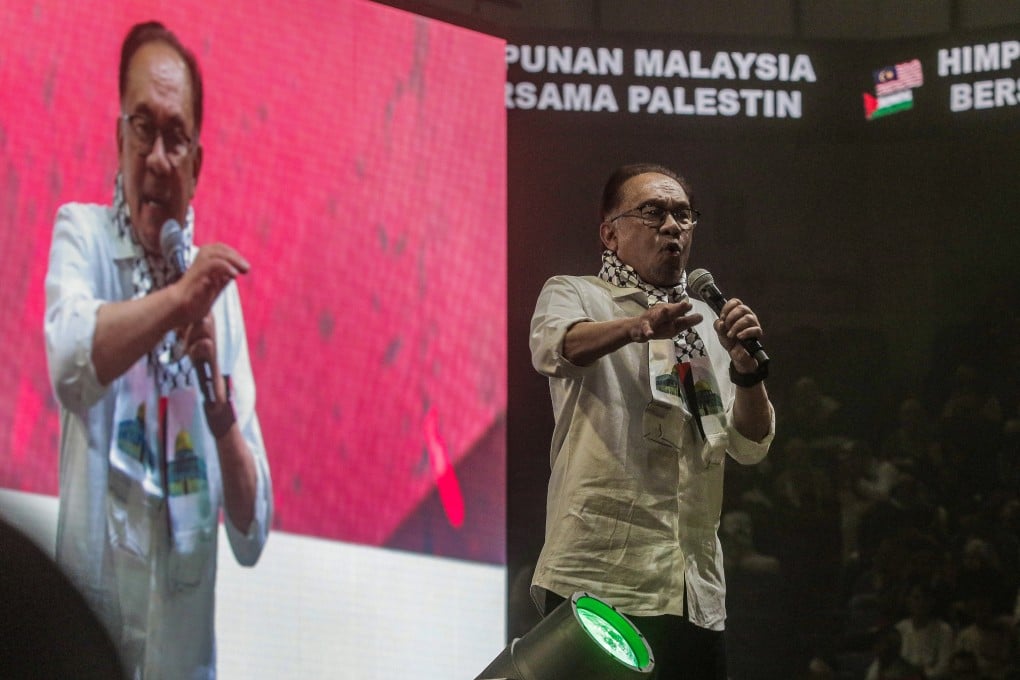My Take | Anwar must shift focus back to Malaysia as ratings dip amid his anti-Israel cause
- Anwar has been actively campaigning for the Palestinian cause but his allies want him to focus on domestic policies
- Polls have shown Anwar’s popularity is falling even as he attempts to win more support from Malay-Muslim voters

Nobody said it would be easy to run a country.
Even his path to the top post was riddled with political shenanigans, as rival parties jostled to secure sufficient support to claim the right to form government in the weeks after an ethnically split general election that returned no clear winner for the first time in the country’s history.
He eventually secured a supermajority in parliament, something that has not been seen since 2004, thanks to an ad-hoc partnership between his allies and their long-time rivals at the behest of the king.
It gave some hope that the government would finally have space to ease off the political throttle after a period of heightened uncertainty that followed the historic change of government in 2018, which ended the then-ruling Barisan Nasional (BN) coalition’s unbroken streak of power since the country gained independence from the British six decades earlier.
